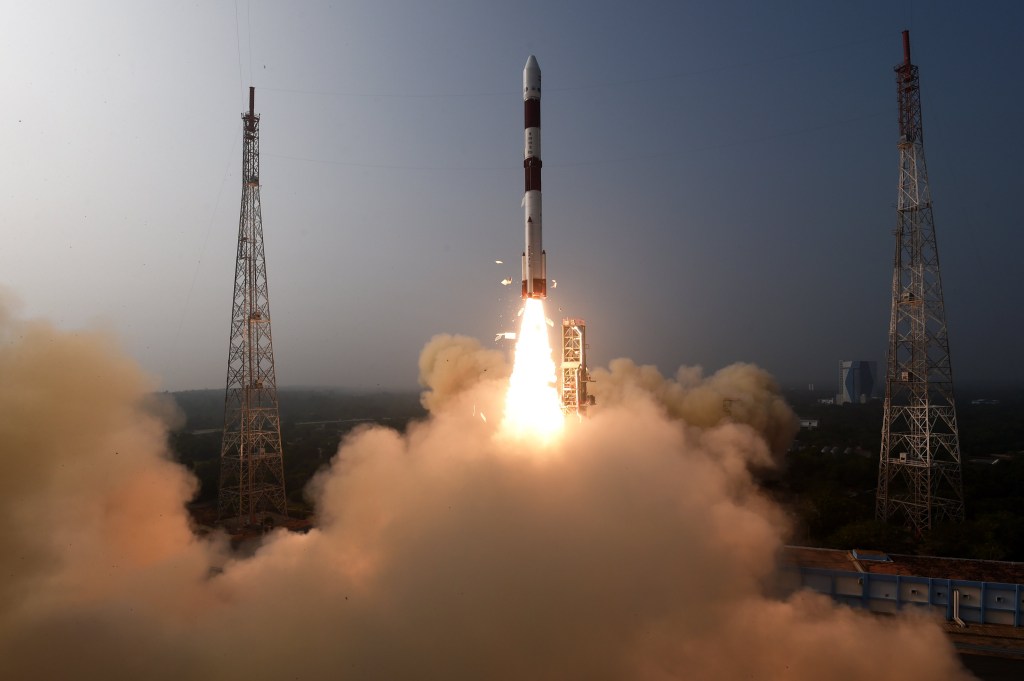India and France boast a robust history of collaboration in the realm of space, a linchpin within their strategic alliance. This partnership is a crucible of joint projects, knowledge exchange, and a shared commitment to propelling space technology to new frontiers. It not only fosters innovation but also fortifies the positions of both nations in the intricate tapestry of the global space community.
The inception of the Joint Vision for Space Cooperation in 2018, during President Macron’s visit, marked a significant milestone. The collaboration between the Indian Space Research Organisation (ISRO) and France’s Centre National d’Etudes Spatiales (CNES) encompasses diverse facets, with France serving as a major supplier of components and equipment for India’s burgeoning space program.
The bedrock of strategic guidance lies in the Strategic Space Dialogue, a mechanism spanning civilian and defence dimensions of space cooperation. The inaugural India-France Strategic Space Dialogue in 2023 identified key areas for cooperation, including joint-satellite missions like Trishna, Maritime Domain Awareness, payload accommodation, ground station support, and human spaceflight.
The historical roots of India-France bilateral cooperation extend back to the 1960s, showcasing the longevity of their engagement. A pivotal legacy is the development of propulsion technology, an enduring testament to their collaborative efforts. The establishment of a CNES liaison office in Bengaluru in 2013 further cements the enduring nature of their partnership.
The signing of a memorandum of understanding for space cooperation in April 2015 elevated the relationship, followed by a joint vision for space collaboration in 2018, underscoring their commitment to various aspects of space exploration.
The year 2019 witnessed a surge in Indo-France space endeavours, with President Macron’s state visit leading to the creation of an Indo-French working group on India’s human spaceflight mission. A landmark agreement in 2019 formalized the development of a maritime surveillance center in India, aligning with India’s ambitious missions to Mars, Venus, and asteroids. Additionally, collaborative efforts extended to joint satellites SARAL and Megha Tropiques, showcasing the breadth of their engagement.
In 2022, a key pact was signed, formalizing a bilateral strategic dialogue to enhance coordination and jointness between the space and defense agencies of India and France. This made France the third country, after the US and Japan, to establish a space security dialogue with India, emphasizing the uniqueness of their relationship.
The bilateral dialogue also addressed the imperative strategy to safeguard space assets, particularly in the context of China’s actions in outer space. The irresponsible anti-satellite (ASAT) test of 2007 and uncontrolled re-entries by China prompted a concerted effort to ensure the sustainability of outer space activities.
The impact of the Ukraine war on space collaborations became evident as geopolitical shifts affected the International Space System (ISS). A European Union (EU) report highlighted Russia’s withdrawal from a joint space center in French Guiana, presenting both challenges and opportunities for India to enhance its satellite launching capacity.
French Space Days India 2023 emerged as a significant milestone, organized in collaboration with CNES, GIFAS, ISpA, IFCCI, and supported by IN-Space and ISRO. This four-day immersive event spanned Delhi, Hyderabad, Mumbai, and Bengaluru, bringing together visionaries and experts from both nations to celebrate space innovation and collaboration.
The event featured the presence of French astronaut Thomas Pesquet, adding a celestial touch by sharing experiences and insights into the future of space exploration. Notably, the event witnessed the signing of significant Memorandums of Understanding (MoUs) between French and Indian companies, setting the stage for future collaborations.
One such MoU involved Skyroot Aerospace and Prométhée Earth Intelligence, focusing on launch services for earth observation satellite constellations. Another MoU, involving Skyroot, Expleo, and ConnectSAT, aimed at establishing the OSIRIS satellite constellation, showcasing the depth and diversity of collaborative projects.
Kinéis signed an MoU to leverage Indian National Centre for Ocean Information Services’ satellite ground station infrastructure for real-time reception and processing of data from ocean observing platforms in the Indian Ocean regions using ARGOS communication.
An MoU between ISpA (Indian Space Association) and GIFAS further strengthened a six-decade-long collaboration in the space sector. This collaboration, with the Society of Indian Defence Manufacturers, symbolizes a heightened level of cooperation between the two ecosystems.

